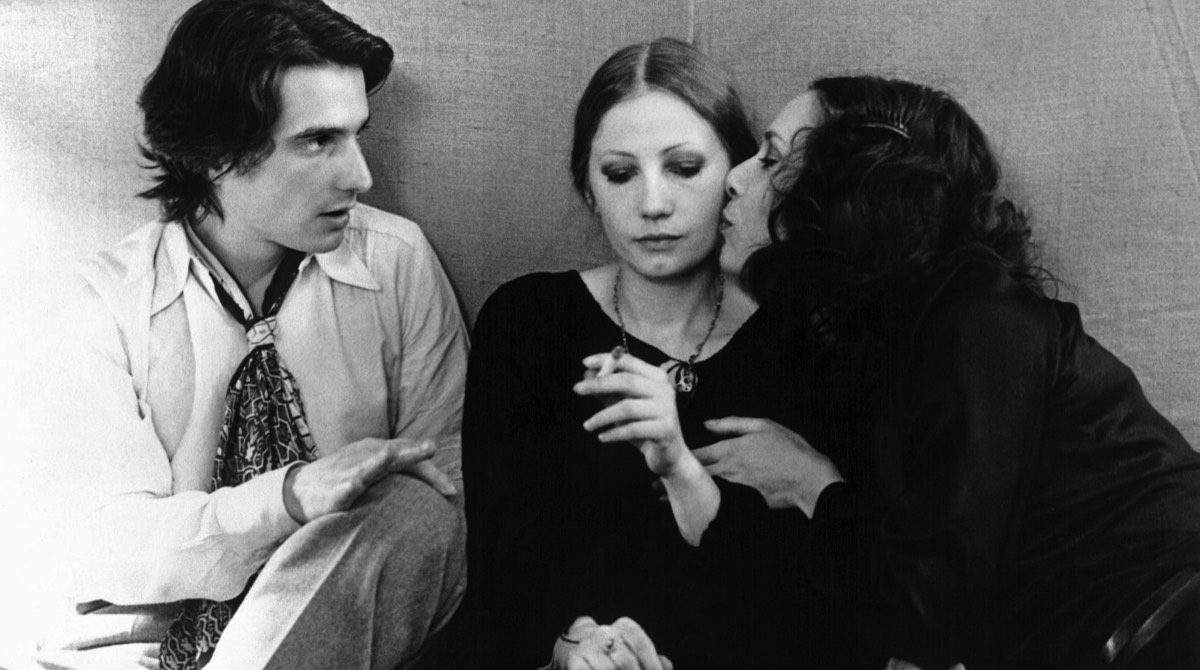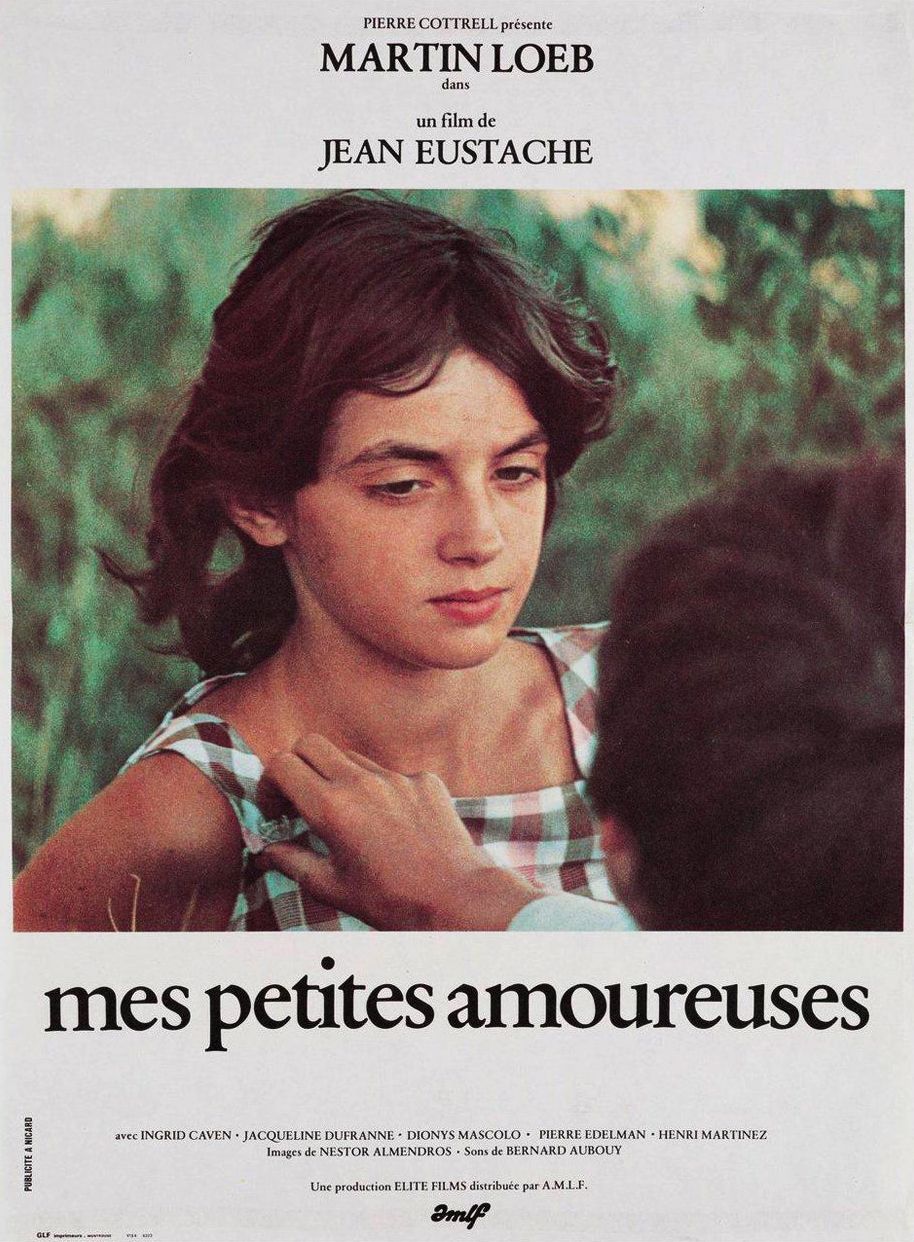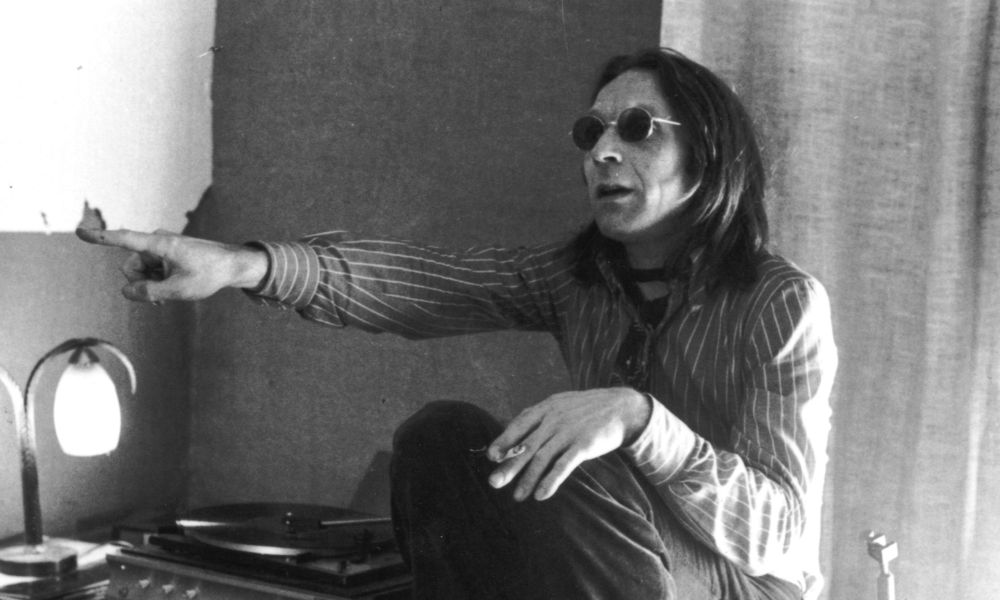"Outside France, Jean Eustache is the least known of the great filmmakers. Even in France, at the time of writing, none of his films, not even his acknowledged masterpiece The Mother and the Whore (1973) is available on DVD. Yet to many of the later post-nouvelle vague French directors - Arnaud Desplechin, Catherine Breillat, Claire Denis and Olivier Assayas, for example - Eustache is at least as important as Godard or Truffaut. He was the most honest, the most lacerating of artists." - Tom Charity (The Rough Guide to Film, 2007)
Jean Eustache
Director / Screenwriter / Editor / Actor / Producer
(1938-1981) Born November 30, Pessac, Gironde, France
Top 250 Directors
(1938-1981) Born November 30, Pessac, Gironde, France
Top 250 Directors
Key Production Country: France
Key Genres: Documentary, Drama, Comedy Drama, Short Film, Culture & Society, Urban Drama
Key Collaborators: Philippe Théaudière (Cinematographer), Jean-Noël Picq (Character Actor), Jean-Pierre Léaud (Leading Actor), Boris Eustache, Pierre Cottrell (Producer), Robert Alazraki (Cinematographer), Pierre Lhomme (Cinematographer), Jean-Yves Coic (Cinematographer), Jacques Renard (Cinematographer), Françoise Lebrun (Leading Character Actress), Jean Douchet (Character Actor)
Key Genres: Documentary, Drama, Comedy Drama, Short Film, Culture & Society, Urban Drama
Key Collaborators: Philippe Théaudière (Cinematographer), Jean-Noël Picq (Character Actor), Jean-Pierre Léaud (Leading Actor), Boris Eustache, Pierre Cottrell (Producer), Robert Alazraki (Cinematographer), Pierre Lhomme (Cinematographer), Jean-Yves Coic (Cinematographer), Jacques Renard (Cinematographer), Françoise Lebrun (Leading Character Actress), Jean Douchet (Character Actor)
"A film enthusiast from childhood, he began in the early 60s hanging around the the Paris offices of the New Wave magazine Cahiers du Cinéma, where his wife worked as a secretary… A self-effacing, ascetic man, he barely made a living at his chosen art, occasionally directing documentaries or editing films for other directors. But his early work was highly regarded by his colleagues and by many serious critics. He gained wide recognition in 1973 with The Mother and the Whore, a nearly four-hour-long, black-and-white film about sex and emotion in which he achieved an improvisatory look through disciplined means… In 1980 he was hurt in an accident and for the next 15 months barely left his home. He took his own life by a gunshot just three weeks before his 43rd birthday." - The Film Encyclopedia, 2012
"Eustache was not like Renoir or Bresson or Godard or even Pialat; ‘human content’ was not a ne plus ultra for him. From early on, his work pushed into a conceptual direction: the unflinchingly minimalist portrait of his grandmother in Numéro zero (1971), the twin documentaries of La Rosière de Pessac (1968/79), raw reality revisited and recast as a ritual mise en scène … leading to the magisterial experiments in staged/performed actuality in Une sale histoire (1977) and his final, severe short films. From the provocative stench of the lived gutter to the hard form of a filmic dispositif: Eustache never ceased to challenge us with these experimental extremes, these twin cultural scandals, and their hybrid, surprising combinations." - Adrian Martin (Film Critic: Adrian Martin, 2011)

The Mother and the Whore (1973)
"Only one of his films is widely known internationally, but in France, Jean Eustache is often cited as the most important post-New Wave director and a vital influence on contemporary figures such as Catherine Breillat and Benoît Jacquot. Eustache arrived in Paris in the 1950s and transformed himself into an urban dandy. A fringe member of the Cahiers du Cinéma crowd, he began making documentaries and short films in the early 1960s. These two branches to his art were linked yet qualitatively distinct." - Richard Bell (501 Movie Directors, 2007)
"With only a slim portfolio of films and TV documentaries, Jean Eustache has nevertheless left his mark as a pioneering exponent of direct cinema which frequently privileges the spoken word within the visual medium, and as the director most accurately reflecting attitudes and anxieties of the sixties post-war generation. By refusing to compromise exacting personal standards to commercialism while severely testing loyalties through his difficult, self-deprecating, yet defensively assertive personality, he effectively condemned himself to mainstream cinema's periphery." - R.F. Cousins (Film Reference)
"There are few men or women who deserve their place in cinema history on the strength of only one film, but Eustache is one of them. His La Maman et la putain [The Mother and the Whore] (1973) is so extraordinary and unique an achievement that it almost beggars belief. On seeing it on its re-release in London in 1998, this author came out of the cinema after 219 of the shortest minutes of his life, convinced afresh, (as if he ever needed convincing), that cinema, in the right hands, can be one of the greatest, noblest, and most subversively illuminating of all art forms." - Mario Reading (The Movie Companion, 2006)
"You’re always a little disappointed, you always hope to do better. You achieve something and, yet, you had hoped it would be better... Most of the films I’ve done have pleased my friends, have been pretty well liked around me, which cut off my need to make something else immediately. If I had only been met with incomprehension, I would maybe have insisted, I would maybe have fought." - Jean Eustache, 1971
Selected Filmography
{{row.titlelong}}
GF Greatest Films ranking (★ Top 1000 ● Top 2500)
21C 21st Century ranking (☆ Top 1000)
T TSPDT R Jonathan Rosenbaum
21C 21st Century ranking (☆ Top 1000)
T TSPDT R Jonathan Rosenbaum
Jean Eustache / Fan Club
Ira Sachs, Sandra Kogut, Dan Sallitt, Mia Hansen-Løve, Mark Cousins, Eulàlia Iglesias Huix, Alejandro Cozza, Quim Casas, Peter Körte, Justine Triet, Guillaume Brac, José Luis Guerín.
Ira Sachs, Sandra Kogut, Dan Sallitt, Mia Hansen-Løve, Mark Cousins, Eulàlia Iglesias Huix, Alejandro Cozza, Quim Casas, Peter Körte, Justine Triet, Guillaume Brac, José Luis Guerín.
"Fan Club"
These film critics/filmmakers have, on multiple occasions, selected this director’s work within film ballots/lists that they have submitted.
These film critics/filmmakers have, on multiple occasions, selected this director’s work within film ballots/lists that they have submitted.


